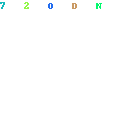Related posts
Description
Akbar Ahmed has a well-earned reputation as one of the most balanced, learned and original interpreters of Islam in its engagement with the non-Muslim world. It is hard to exaggerate the importance of this work, like so much else he has done, at a time when myths and fantasies still stir up corporate fear between our communities. A deeply welcome and thoroughly professional study.
-Dr. Rowan Williams, Former Archbishop of Canterbury and Master of Magdalene College, University of Cambridge
Akbar Ahmeds profound and careful inquiries have greatly enriched our understanding of Islam in the modern world. His latest study, based on direct research with a group of young scholars, explores the complex interfaith reality of Europe, both in history and today, from an Eastern perspective, reversing the familiar paradigm. It is sure to be yet another influential contribution, one greatly needed in a world riven by conflicts and misunderstanding.
-Professor Noam Chomsky, Institute Professor & Professor of Linguistics (Emeritus), Massachusetts Institute of Technology
An unprecedented, richly detailed, and clear-eyed exploration of Islam in Europe and the place of Islam in European history and civilization
Daily headlines tell of escalating tensions surrounding Muslims in Europe: the refugee crisis, repeated episodes of terrorism, and cultural differences over language and female dress have helped shape a growing rift between the communities, while the parallel rise of right-wing, nationalist political parties throughout the continent, often espousing anti-Muslim rhetoric, has shaken the foundation of the European Union to its very core.
Over the past decade, the relationship between European and Islamic societies has been defined by steadily escalating tension. Many Europeans see Islam as an alien, even barbaric force that threatens to overwhelm them and their societies. Muslims, by contrast, are facing conflicting attractions to Europes economic opportunities and repulsion to intolerance in the region, with Islamophobia reaching extreme levels in all corners of Europe. Amid this conflict, the Jewish community and other minority groups are finding themselves caught in a similar onslaught of xenophobic rhetoric, with anti-Semitism and other forms of discrimination causing many to feel unwelcome in their European homes.
Akbar Ahmed, widely acknowledged as a leading scholar of contemporary Islam, and a team of researchers have traveled across Europe over the last several years and interviewed Muslims and non-Muslims from all walks of life. They spoke with some of Europe's most prominent figures, including presidents and prime ministers, archbishops, chief rabbis, grand muftis, heads of right-wing parties, and every-day Europeans from a variety of backgrounds. Their findings reveal both of the misunderstandings and the opportunities for Europe and its Muslims to improve their mutual relationship. Along with an analysis of what has gone wrong and why, this urgent, unprecedented study, the fourth in a quartet of studies examining relations between the West and the Muslim world, features recommendations for promoting integration and pluralism in the twenty-first century.

